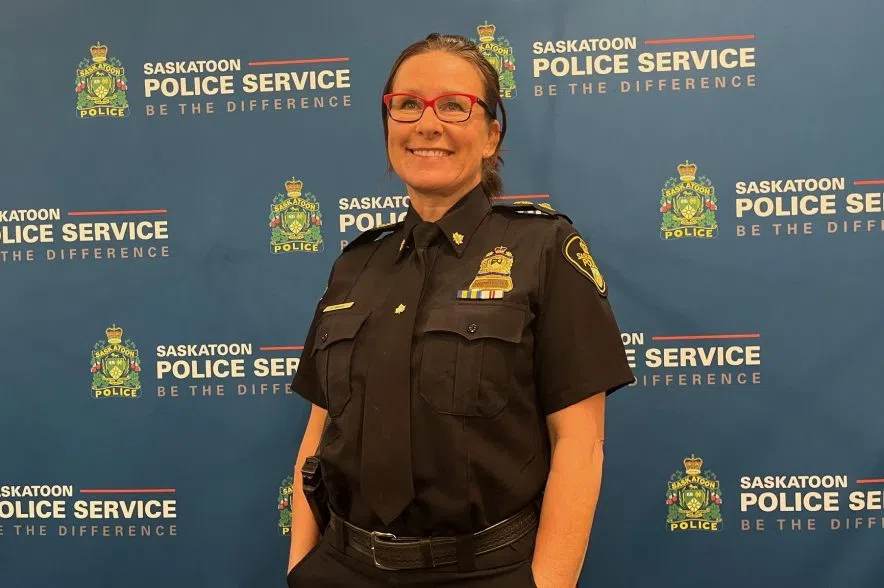It’s a big achievement for the Saskatoon Police Service.
Last month, Tonya Gresty became the first female superintendent in the force’s history. The rank is the third-highest in the organization, right below chief and deputy chief.
Gresty said she’s ready to dive into her new role and is eager to look at issues from a strategic level and planning perspective, and to make changes to how police work is being done in the city.
“There’s lots of work to do and lots to learn, but I am very excited,” she said.
Gresty said she’s interested in supporting the victims of violent crime, expanding crisis teams, and contributing to conversations on how bail reform is managed at a provincial level.
READ MORE:
- Troy Cooper to retire after five years as Saskatoon police chief
- Man charged after allegedly assaulting Saskatoon police officer
- Saskatoon council passes police budget on first day of deliberations
She added that the recommendations from the Mass Casualty Commission, which were released earlier this year after an investigation into the 2020 mass shooting in Nova Scotia, are also top of mind for law enforcement agencies across the country and can be implemented on the force.
“I see great areas for improvement in how we deal with interpersonal violence,” she said.
Gresty’s career in policing started in 2001, and she has spent the majority of her 22-year journey in uniform and on patrol.
Now, she said she hopes to inspire women on the force in the same way other female officers have inspired her. Specifically, she said she drew a lot of guidance and inspiration from Shelley Ballard, a now-retired inspector with the Saskatoon police.
“She was really a standout role model,” Gresty said, adding that Ballard took on leadership roles that traditionally were not filled by women.
“She made me feel like anything was possible. I hope that I can provide that to the women coming up through the ranks at SPS,” she said, adding she also hopes to be a leader for male officers as well.
Currently, 24 per cent of sworn officers on the force are women. Gresty said women have strong representation within the police service, but there’s always room for improvement.
The superintendent said they are looking at strategies for recruiting, including breaking down barriers and debunking myths that might keep women from applying for the work in the male-dominated industry.
One example she cited was the police fitness test.
“There’s different perceptions about what type of strength it takes to do that work,” she said.
Female-centered training opportunities are available, she explained, to give women a chance to work with the equipment and give them a sense of what the testing is like. Gresty said that specific approach is intended to show women that success is possible through dedication and hard work.











